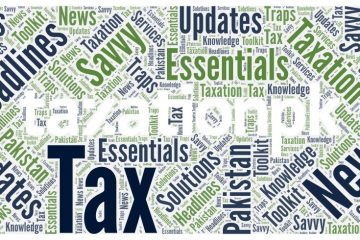Discover major tax relief for the property sector, updates on late filer rules, and proposed reforms to simplify taxation and boost real estate activity.
The government has announced significant updates aimed at easing tax burdens on the property sector. These changes address the concerns of taxpayers, particularly those classified as late filers, and aim to revive real estate activity while improving tax compliance. Below is a detailed analysis of the relief package and the reforms under discussion.
Tax Relief for the Property Sector
A special package for the property sector has introduced notable reductions in tax rates to boost business activity and encourage transactions. Key highlights include:
- Section 236C (Withholding Tax on Sale of Property): The tax rate has been reduced from 4% to 2%.
- Section 236K (Advance Tax on Purchase of Property): This tax rate has been drastically reduced from 4% to 0.5%.
- Capital Gain Tax Slabs: Adjustments have been made, although specific slab details are yet to be clarified.
- Federal Excise Duty (FED): Relevant changes have been included to provide additional relief.
These measures reflect the government’s commitment to supporting the real estate sector and easing financial pressures on stakeholders. However, another critical issue—taxation on late filers—has also been a focal point of discussions, as it significantly impacts property transactions.
The Late Filer Category: Current Issues and Challenges
The “late filer” category, introduced in the July 2024 budget, applies to individuals who file their tax returns after the due date but before the next tax cycle. This classification has created complications in the tax system, especially for property transactions.
For instance:
- A regular filer pays 3% tax on a property transaction.
- A late filer pays double, at 6%.
- A non-filer pays the highest rate, often 10% or more.
The late filer category was introduced to encourage timely tax compliance, but it has inadvertently placed an undue burden on taxpayers, particularly those involved in real estate transactions. The double taxation rate has discouraged genuine buyers and sellers, slowed market activity, and reduced overall tax collection.
Concerns Raised by Stakeholders
The late filer category has been widely criticized for the following reasons:
- Financial Burden on Taxpayers: Genuine taxpayers who missed filing deadlines due to unavoidable circumstances are heavily penalized, even if they later comply.
- Negative Impact on Real Estate: The higher tax rates for late filers have made property transactions costlier, reducing business activity in the sector.
- Tax Collection Shortfall: The slowdown in real estate transactions has led to a shortfall in the Federal Board of Revenue’s (FBR) tax targets, as fewer deals are taking place.
Government Action and Proposed Reforms
Acknowledging these issues, the Prime Minister has instructed a committee to review the late filer category and submit proposals by February 2025. The reforms under consideration include:
- Eliminating the Late Filer Category: This would simplify the tax framework and remove the financial burden on late taxpayers.
- Reducing Tax Rates for Late Filers: Aligning their tax rates closer to those of regular filers to make the system fairer.
- Encouraging Compliance in Real Estate: Targeted measures to revive property transactions and improve tax collection.
The government recognizes the importance of addressing these concerns, as the late filer category disproportionately affects the real estate sector. Unlike other transactions (such as vehicle purchases or banking), the double taxation applies exclusively to property transactions, further compounding the problem.
Expected Updates and Future Outlook
Discussions are ongoing, and updates are expected within the month. It is anticipated that the FBR will issue an official notification soon, outlining the proposed changes. These updates are likely to include:
- Reclassification of Late Filers: Allowing individuals to convert to regular filers after filing their returns, possibly by September 2025.
- Revised Tax Rates: Providing relief to late filers, particularly in the property sector.
- Enhanced Business Activity: Stimulating real estate transactions and boosting overall tax compliance.
The proposed changes aim to address stakeholder concerns, revive the real estate sector, and improve the overall tax collection system.
The government’s recent tax relief measures, combined with proposed reforms for the late filer category, are expected to provide significant relief to taxpayers and real estate stakeholders. By reducing tax rates and addressing the challenges of late filers, these initiatives aim to foster growth in the property sector and enhance tax compliance. Stay tuned for further updates from the FBR, as the coming weeks will likely bring clarity on these critical issues.







